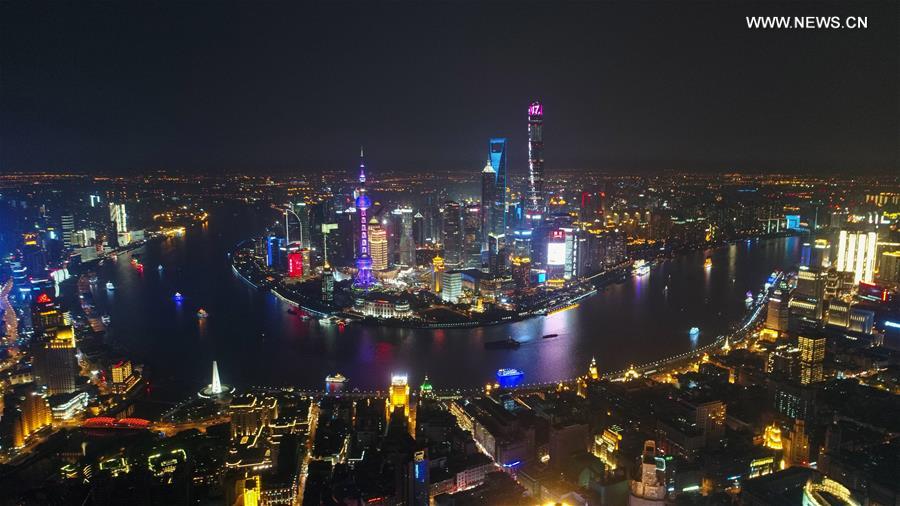Shanghai eyes global tech glory
After burnishing its credentials as a hub for finance and shipping, Shanghai is looking to be the primary global destination for science and technology efforts, according to a municipal government guideline.
Also taking advantage of the "economies of scale" is the artificial intelligence sector. Shanghai has dedicated a zone called AIsland, where the 66,000 square meter working space hosts a slew of AI-research firms.

Photo taken on April 15, 2017 shows an aerial night view of Shanghai, east China. [Photo/Xinhua]
The premier batch of 20 companies included global organizations and local startup firms such as Microsoft, Alibaba, CloudWalk Technology and a research facility affiliated to the Tongji University.
Microsoft is on course to open an AI and internet of things lab on the "island" in May. This will be its third and largest such facility worldwide, through which roughly 300 local clients each year stand to benefit from turning prototyping into products, said Hsiao-Wuen Hon, vice-president of Microsoft and the managing director of Microsoft Research Asia.
"The profile of these companies, together with the cluster of companies from the upstream and downstream sectors, would help AIsland lead the national AI pack and secure Shanghai's position as a budding highland for tech innovation," said Yuan Tao, chairman of Shanghai Zhangjiang Group, the operator of the Zhangjiang Science City.
Official data show that Shanghai is sparing no effort in driving technological breakthroughs. R&D spending in Shanghai last year accounted for 4 percent of its 3.27 trillion yuan ($488 billion) total GDP. The number of patents held by every 10,000 residents consequently surged to 47.5 from 13.3 in 2011.
Shanghai's efforts to become a global tech hub started gaining steam in 2016 when it officially announced its ambition to transform itself into a science and technology center. Four major tasks, including establishing a comprehensive national science center and implementing basic projects and strategic programs, were identified as being crucial to the achievement of this goal.

